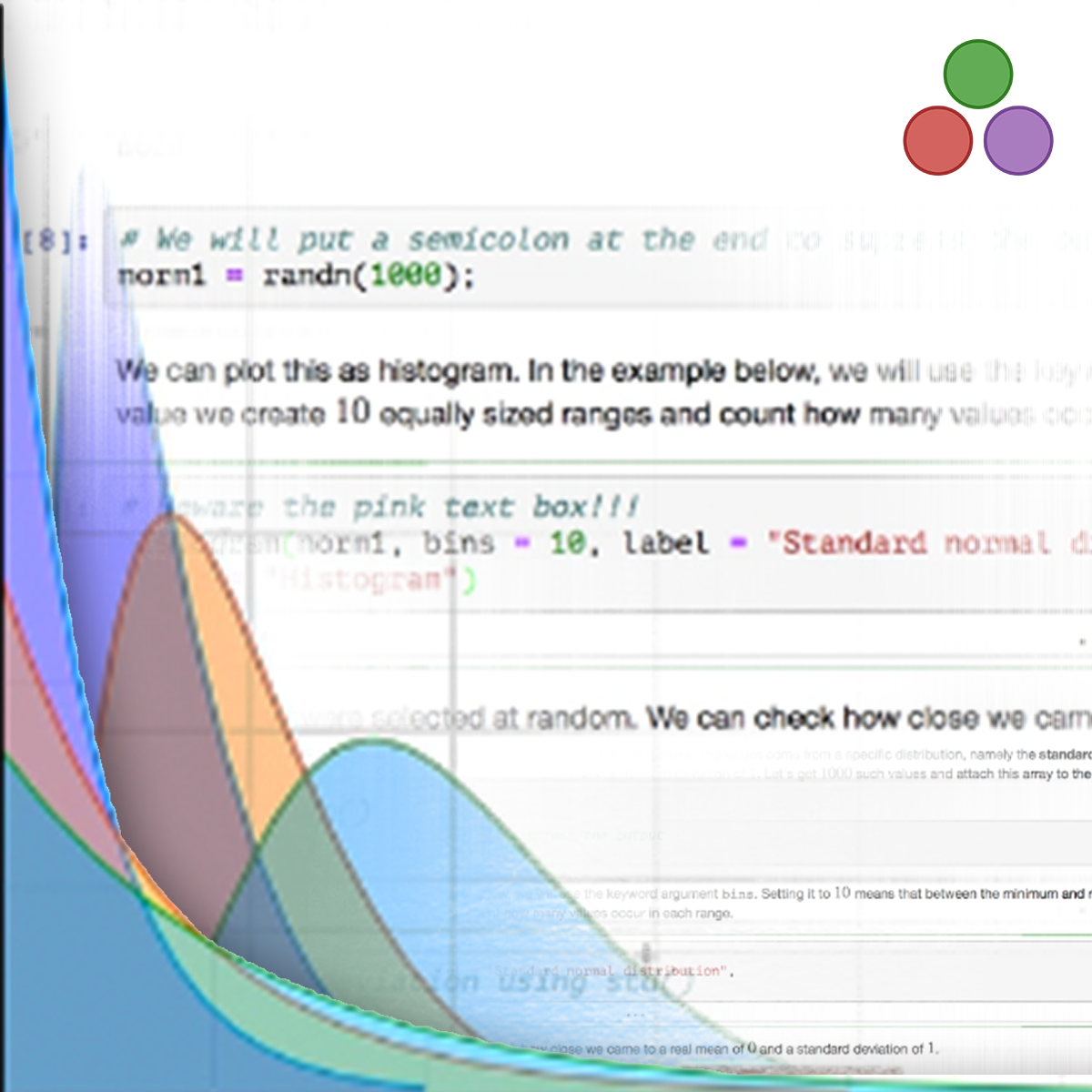Julia Scientific Programming
Overview
This four-module course introduces users to Julia as a first language. Julia is a high-level, high-performance dynamic programming language developed specifically for scientific computing. This language will be particularly useful for applications in physics, chemistry, astronomy, engineering, data science, bioinformatics and many more. As open source software, you will always have it available throughout your working life. It can also be used from the command line, program files or a new type of interface known as a Jupyter notebook (which is freely available as a service from JuliaBox.com). Julia is designed to address the requirements of high-performance numerical and scientific computing while also being effective for general-purpose programming. You will be able to access all the available processors and memory, scrape data from anywhere on the web, and have it always accessible through any device you care to use as long as it has a browser. Join us to discover new computing possibilities. Let's get started on learning Julia. By the end of the course you will be able to: - Programme using the Julia language by practising through assignments - Write your own simple Julia programs from scratch - Understand the advantages and capacities of Julia as a computing language - Work in Jupyter notebooks using the Julia language - Use various Julia packages such as Plots, DataFrames and Stats The course is delivered through video lectures, on-screen demonstrations, quizzes and practical peer-reviewed projects designed to give you an opportunity to work with the packages.
